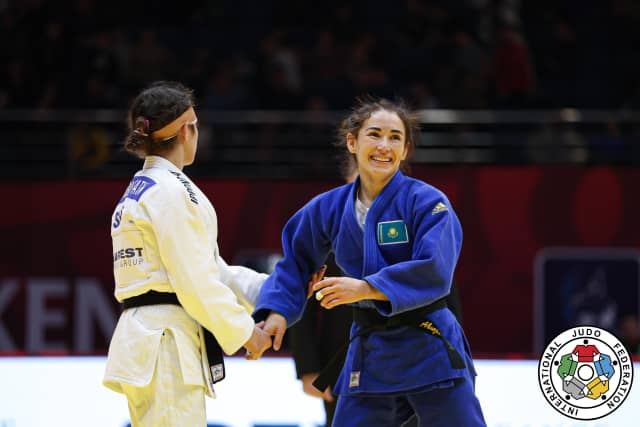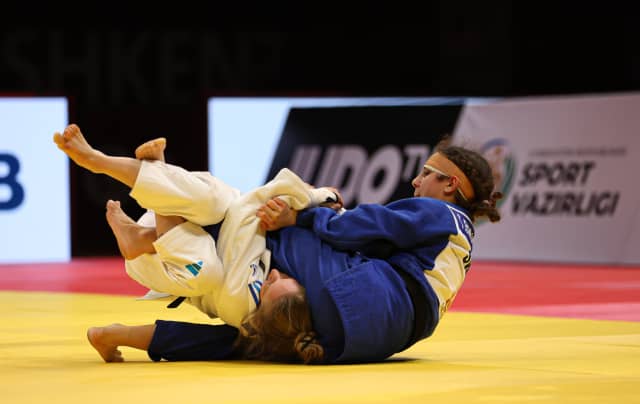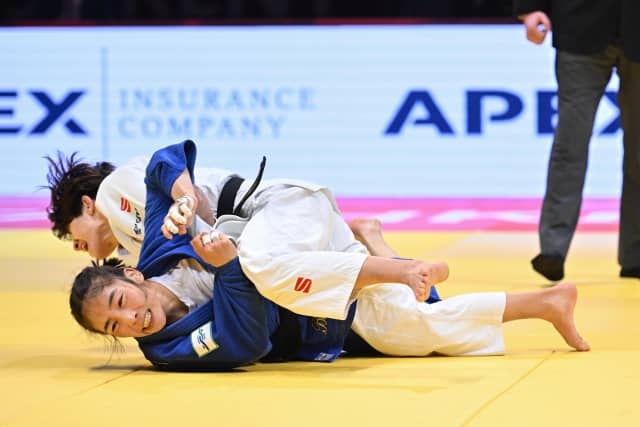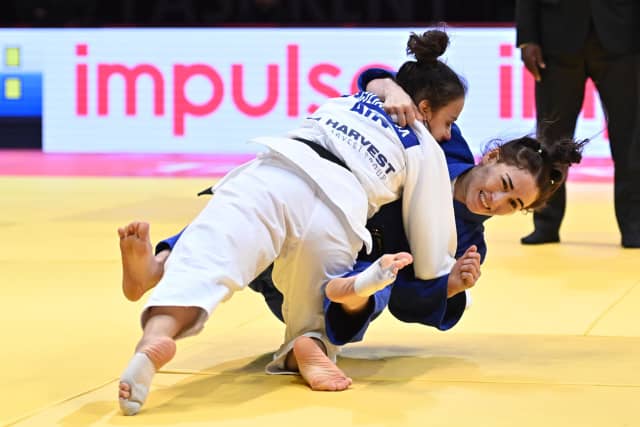It was an interesting contest, perhaps not one Scutto expected. She was held for no score inside the first minute before securing her own hold down at the 2 minute mark but eventually that was escaped from too. Half a minute into golden score Scutto attacked but it wasn’t powerful enough to put Figueroa off and the sumi-gaeshi came in, well placed and timely, scoring a waza-ari to put the number one out.
The Spanish judoka continued, beating Kurbonova (UZB) but then took a loss against Giliazova (AIN) in the quarter-final.
In pool B Ganbaatar (MGL) began well, as number 4 seed, but in he round of 16 she was beaten by 33 year old veteran Shira Rishony (ISR). However, Bavuudorj (MGL) avenged her teammate’s exit, throwing Rishony for two waza-ari in quick succession, a seoi-otoshi first, followed by a swift tomoe-nage.
At the last WJT outing, Nikolic (SRB) met her demise against 18 year old Babulfath (SWE) in the final. It was a shock but she came to Tashkent with renewed spirit, still occupying the top spot on the bottom half of the draw. It was a short-lived revival though as Babulfath awaited her in the round of 16 and threw her even more convincingly this time. She won the quarter-final too, knocking Beder (TUR) into the repechage. Was the young Swede about to do it again?
Abuzhakynova (KAZ) was the only one of the top four seeds to make it to the semi-final stages. She looked sharp throughout the preliminaries and was able to find explosive power even when fighting deep into golden score, as she did against Malca (ISR), throwing with a low o-goshi after almost 6 minutes on the tatami.
The semi-finals both finished with positive scores, Giliazova throwing Bavuudorj in golden score while the Kazakh judoka threw Babulfath with a counter in less than a minute. The answer to our earlier question was clear: no, Tara Babulfath couldn’t do it again! However, she reached yet another final block and having moved into Olympic qualification after stunning result in Baku, it seems she is now chasing Olympic seeding.
The first bronze medal would go to either Rishony or Babulfath, perhaps the newest WJT medallist in the group against the most experienced. Fifteen years span the gap between them, almost a lifetime in judo terms. Rishony came with mature application of the rules and a somewhat cautious approach whereas the youth and energy of Babulfath meant a refusal to stop trying, not giving up in any single exchange and eventually that paid off. She turned the Israeli and pinned her for ippon just inside the last minute of contest time, having driven her to the floor in a counter situation. Babulfath has now confirmed that her Baku result was all part of the plan and than her ability was no flash-in-the-pan.
The second bronze medal contest was between Beder (TUR) and Bavuudorj (MGL), the former winning the prize after levelling a lesson in counter techniques at the Mongolian. Two waza-ari scores were earned, capitalising on every little movement Bavuudorj made.
The final began at an unbelievable pace, Giliazova and Abuzhakynova both attcking, both countering and both seeking any tiny gap in which to place themselves at an advantage. They treated the crowd to two high octane minutes of the highest level of judo, twisting and turning in unpredictable ways, until the Kazakh athlete attempted a huge ura-nage but left just enough space for Giliazova to hook one leg and drive her backwards with a beauytifully driven o-uchi-gari for ippon and grand slam gold.









